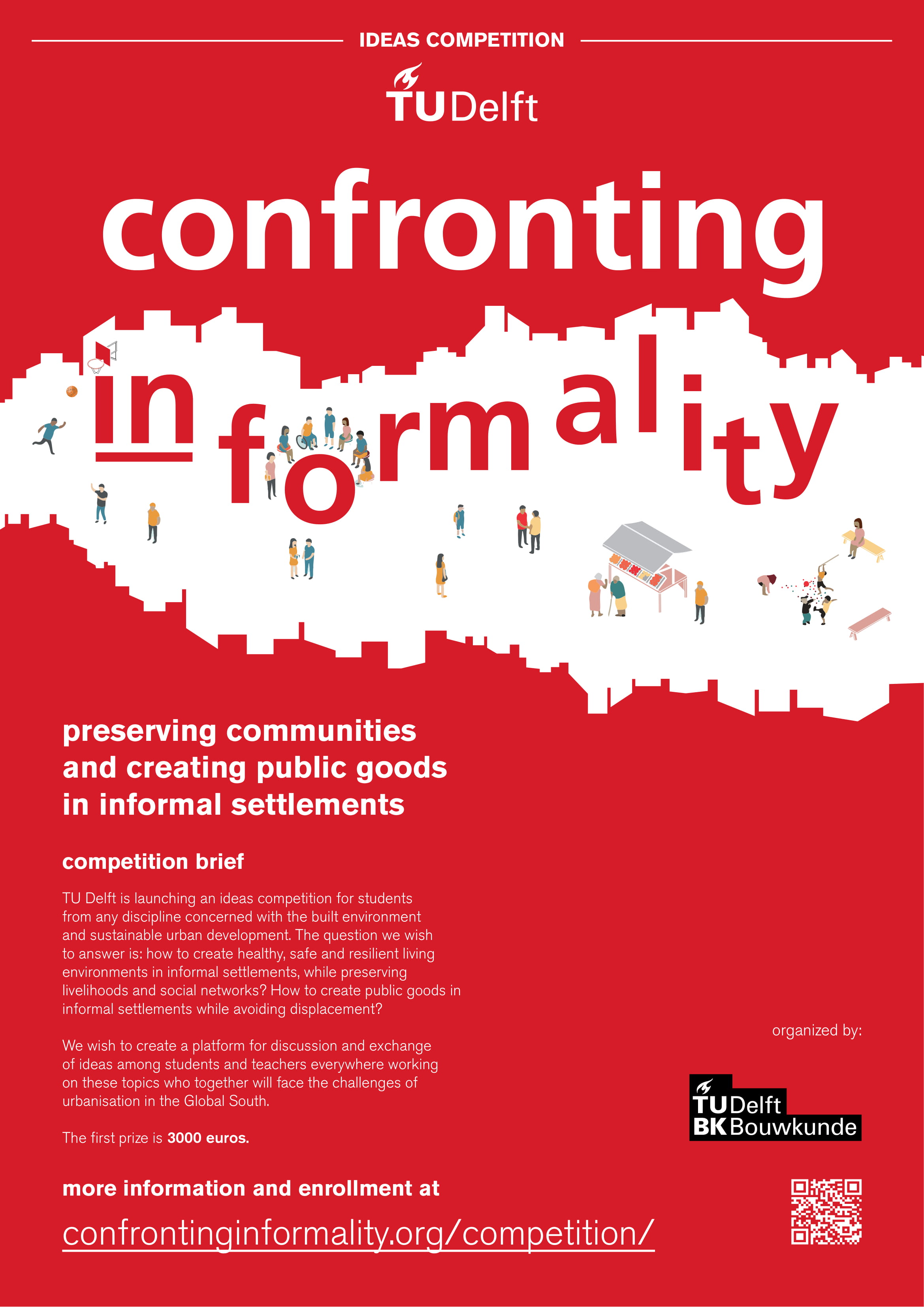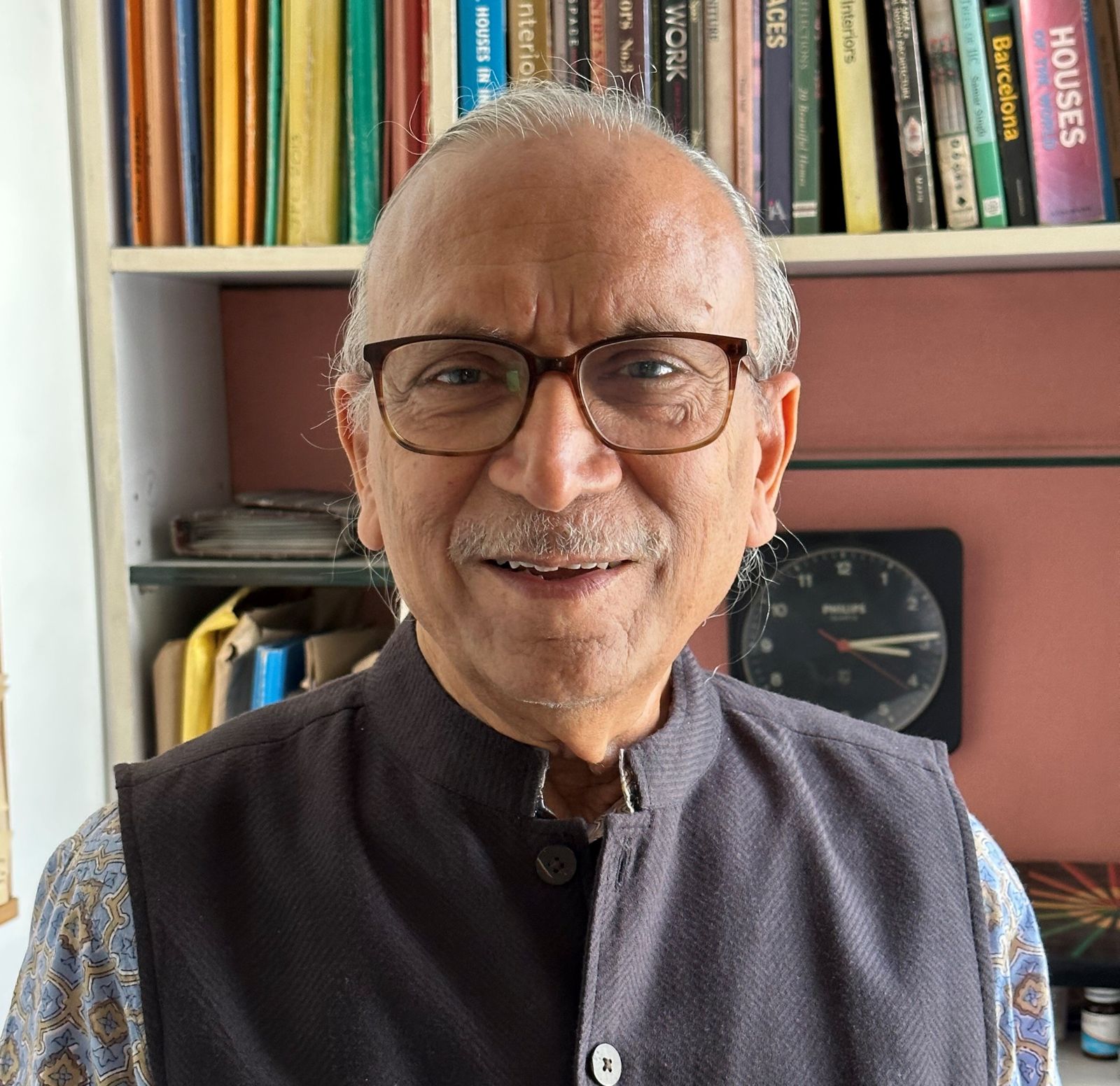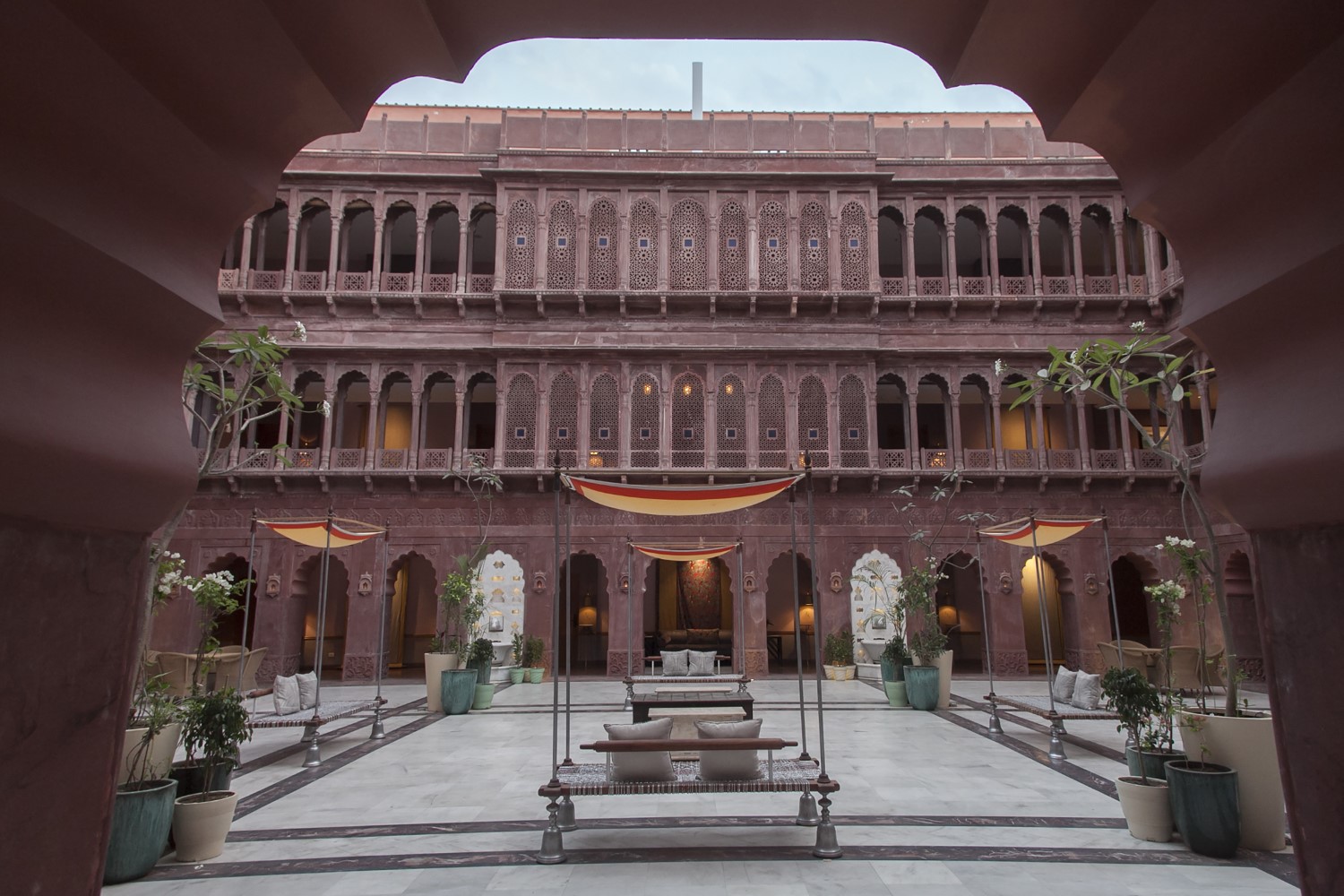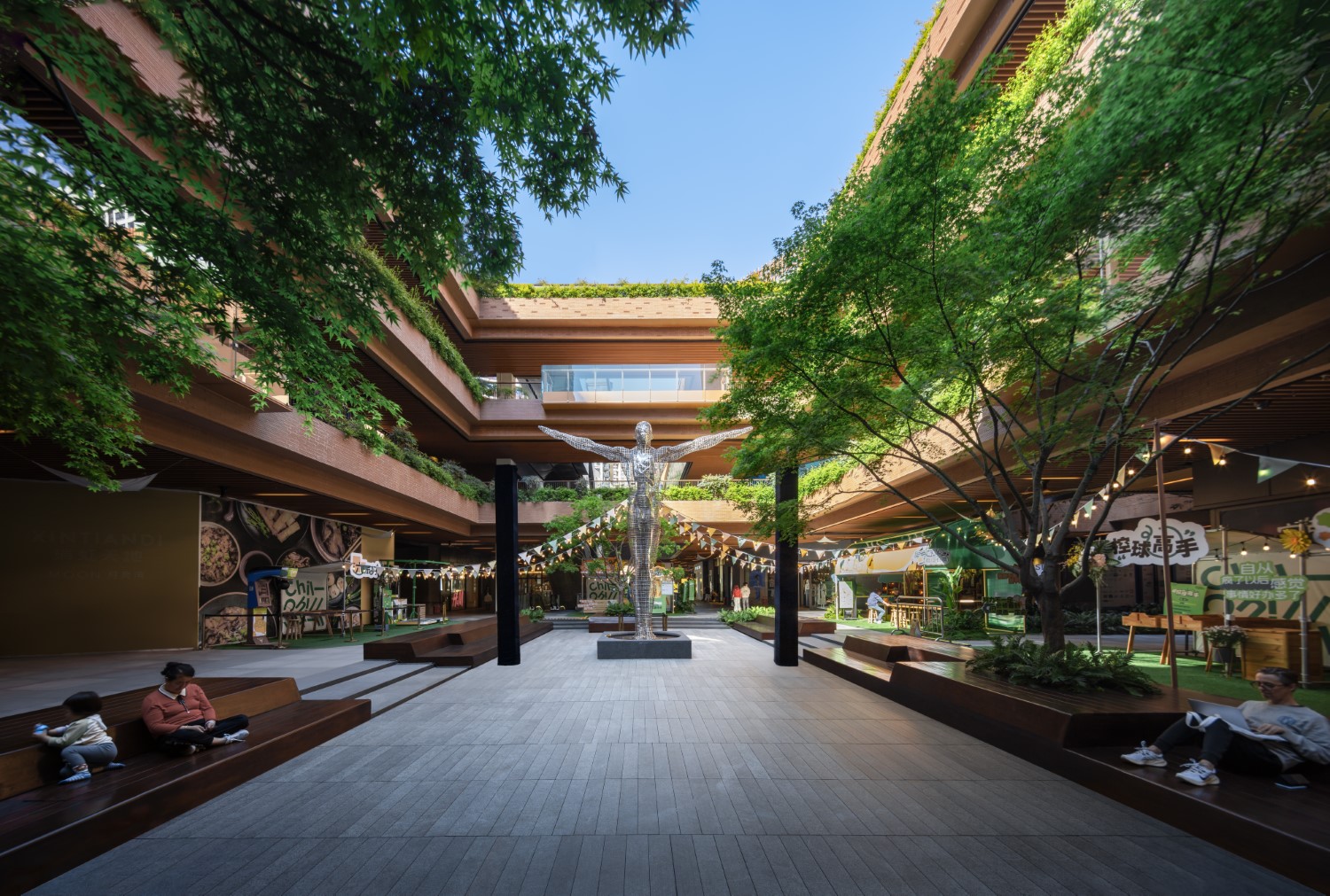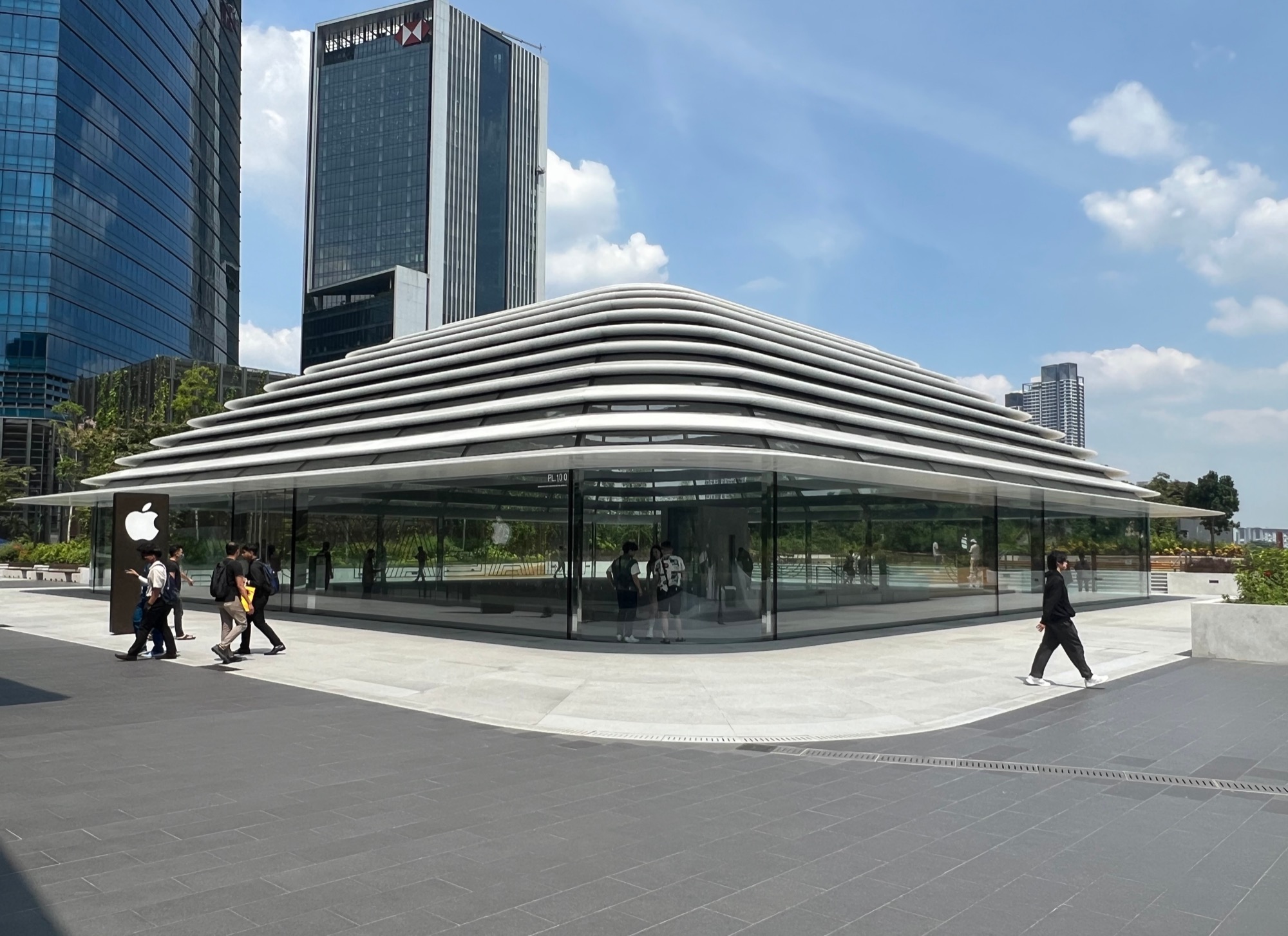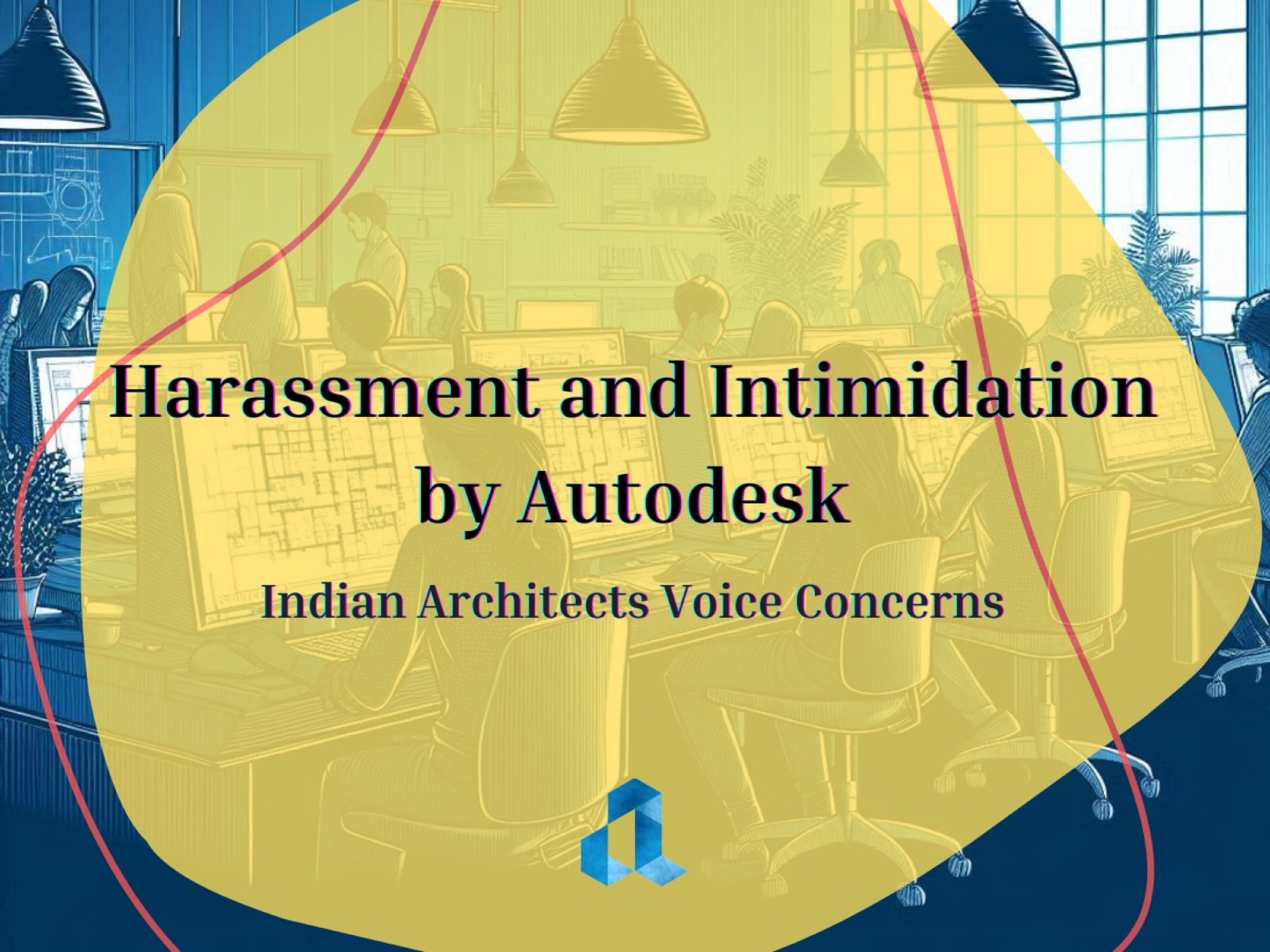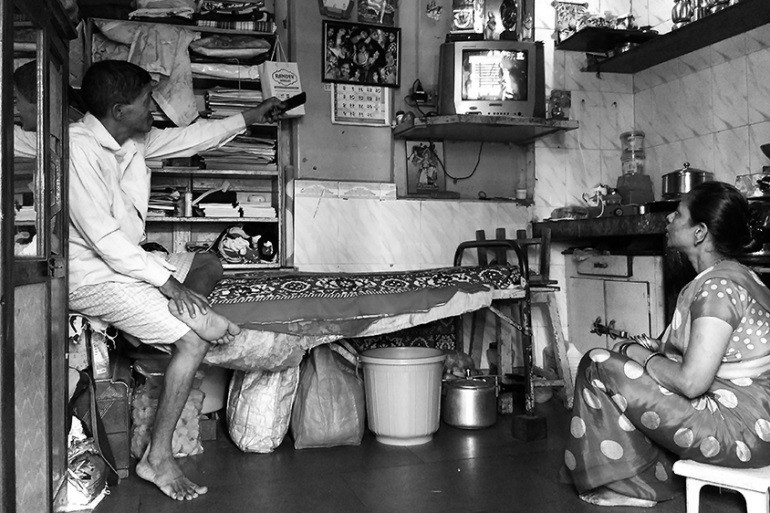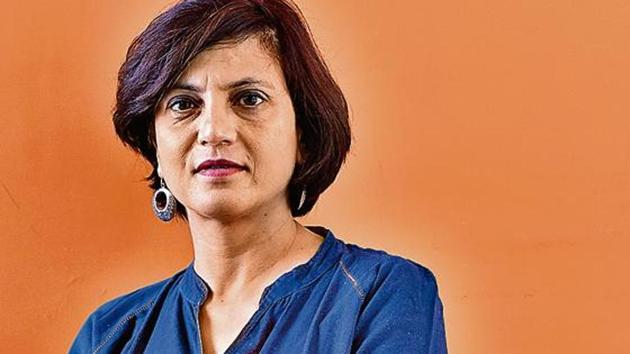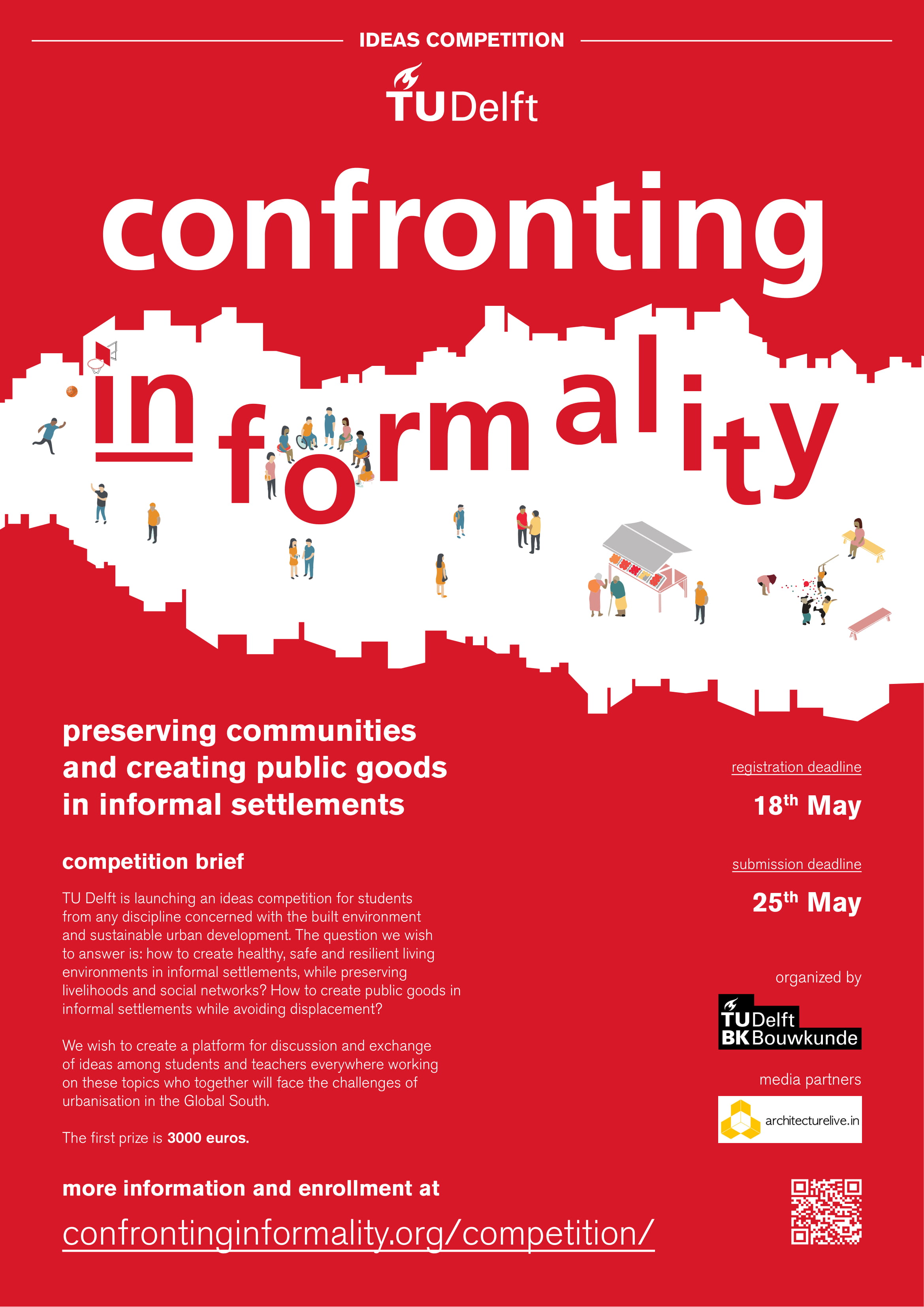 REGISTRATION DEADLINE: MAY 18, 2018
REGISTRATION DEADLINE: MAY 18, 2018
Summary/ Abstract Competition
TU Delft, in partnership with universities all ov er the world, is launching an ideas competition fo r students from any discipline concerned with the built environment and sustainable urban development.The question we wish to answer is: how to create healthy, safe and resilient living environments ininformal settlements, while preserving livelihoods and social networks? How to create public goods ininformal settlements while avoiding displacement?
We live in an urban world, but unplanned explosive processes of urbanization in developing countriesm ea n that informal settlements are growing in population and size, often without infrastructure, accessto sanitation and good quality public space, without easy access to jobs and services, and many other challenges.
This ideas competition addresses the challenges of slums, as defined by UN-Habitat and addresses theneed to promote sustainable, fair and inclusive urbanization based on the principles of the New Urban Agenda.
We wish to create a platform for discussion and exchange of ideas. We also wish to connect to st udentsand teachers everywhere working on these topics and to foster a community of people who togetherwill face the challenges of urbanization in the Global South.
The submissi on deadline of the competition is May 13th, 2018 and the results will be announced onJune 7th, 2018. The winners of this competition will earn 3000 euros and be invited to showcase theirwork in the Rethink the City MOOC.
Please, visit our website for more information on how to participate and the prizes: https://confrontinginformality.org/competition/
For any questions regarding the competition, please contact us on [email protected]

